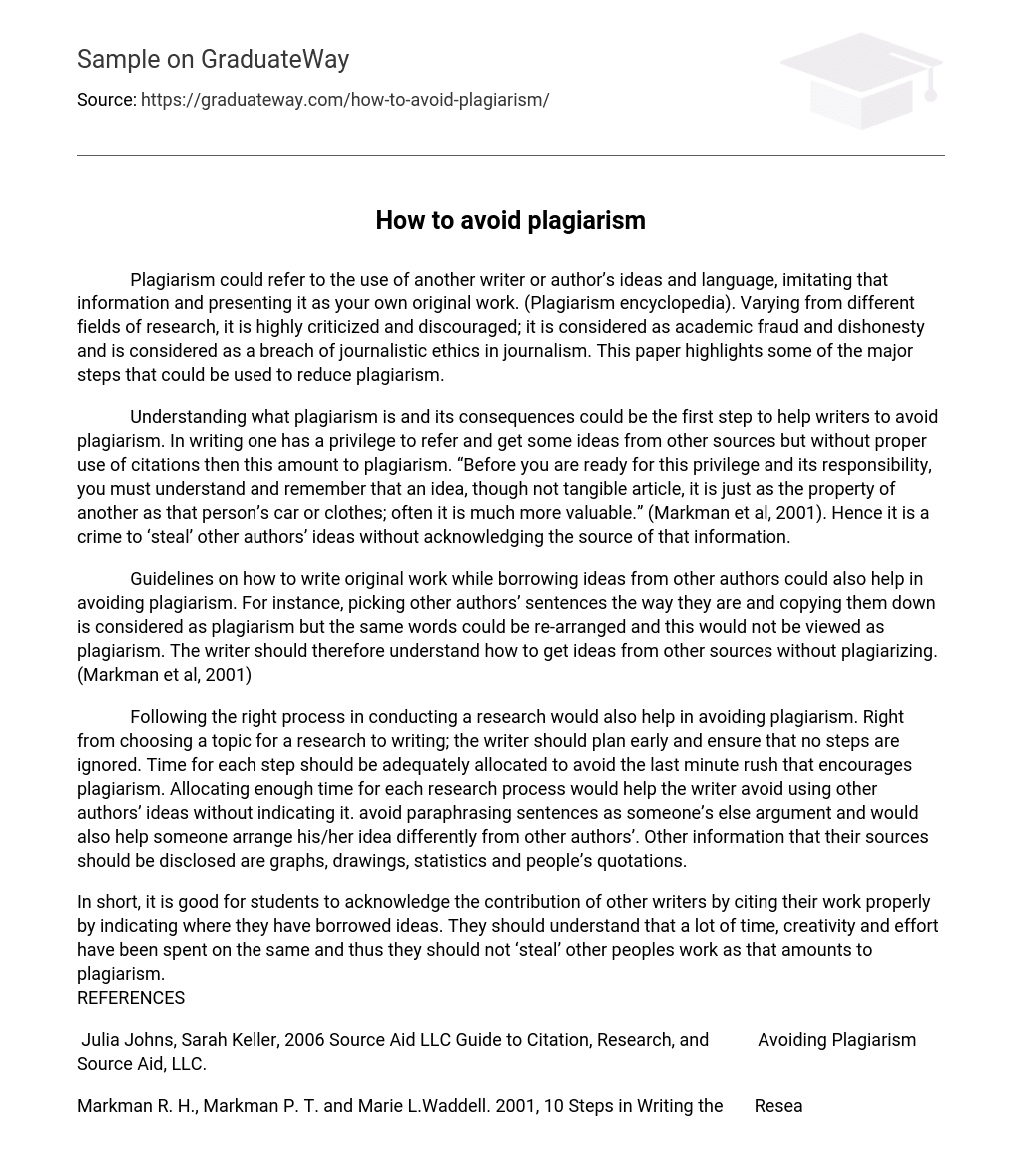Plagiarism could refer to the use of another writer or author’s ideas and language, imitating that information and presenting it as your own original work. (Plagiarism encyclopedia). Varying from different fields of research, it is highly criticized and discouraged; it is considered as academic fraud and dishonesty and is considered as a breach of journalistic ethics in journalism. This paper highlights some of the major steps that could be used to reduce plagiarism.
Understanding what plagiarism is and its consequences could be the first step to help writers to avoid plagiarism. In writing one has a privilege to refer and get some ideas from other sources but without proper use of citations then this amount to plagiarism. “Before you are ready for this privilege and its responsibility, you must understand and remember that an idea, though not tangible article, it is just as the property of another as that person’s car or clothes; often it is much more valuable.” (Markman et al, 2001). Hence it is a crime to ‘steal’ other authors’ ideas without acknowledging the source of that information.
Guidelines on how to write original work while borrowing ideas from other authors could also help in avoiding plagiarism. For instance, picking other authors’ sentences the way they are and copying them down is considered as plagiarism but the same words could be re-arranged and this would not be viewed as plagiarism. The writer should therefore understand how to get ideas from other sources without plagiarizing. (Markman et al, 2001)
Following the right process in conducting a research would also help in avoiding plagiarism. Right from choosing a topic for a research to writing; the writer should plan early and ensure that no steps are ignored. Time for each step should be adequately allocated to avoid the last minute rush that encourages plagiarism. Allocating enough time for each research process would help the writer avoid using other authors’ ideas without indicating it. avoid paraphrasing sentences as someone’s else argument and would also help someone arrange his/her idea differently from other authors’. Other information that their sources should be disclosed are graphs, drawings, statistics and people’s quotations.
In short, it is good for students to acknowledge the contribution of other writers by citing their work properly by indicating where they have borrowed ideas. They should understand that a lot of time, creativity and effort have been spent on the same and thus they should not ‘steal’ other peoples work as that amounts to plagiarism.
REFERENCES
Julia Johns, Sarah Keller, 2006 Source Aid LLC Guide to Citation, Research, and Avoiding Plagiarism Source Aid, LLC.
Markman R. H., Markman P. T. and Marie L.Waddell. 2001, 10 Steps in Writing the Research Paper, Barron’s Educational Series.
Rozakis L. 2007, Schaum’s Quick Guide to Writing Great Research Papers
McGraw-Hill Professional.





